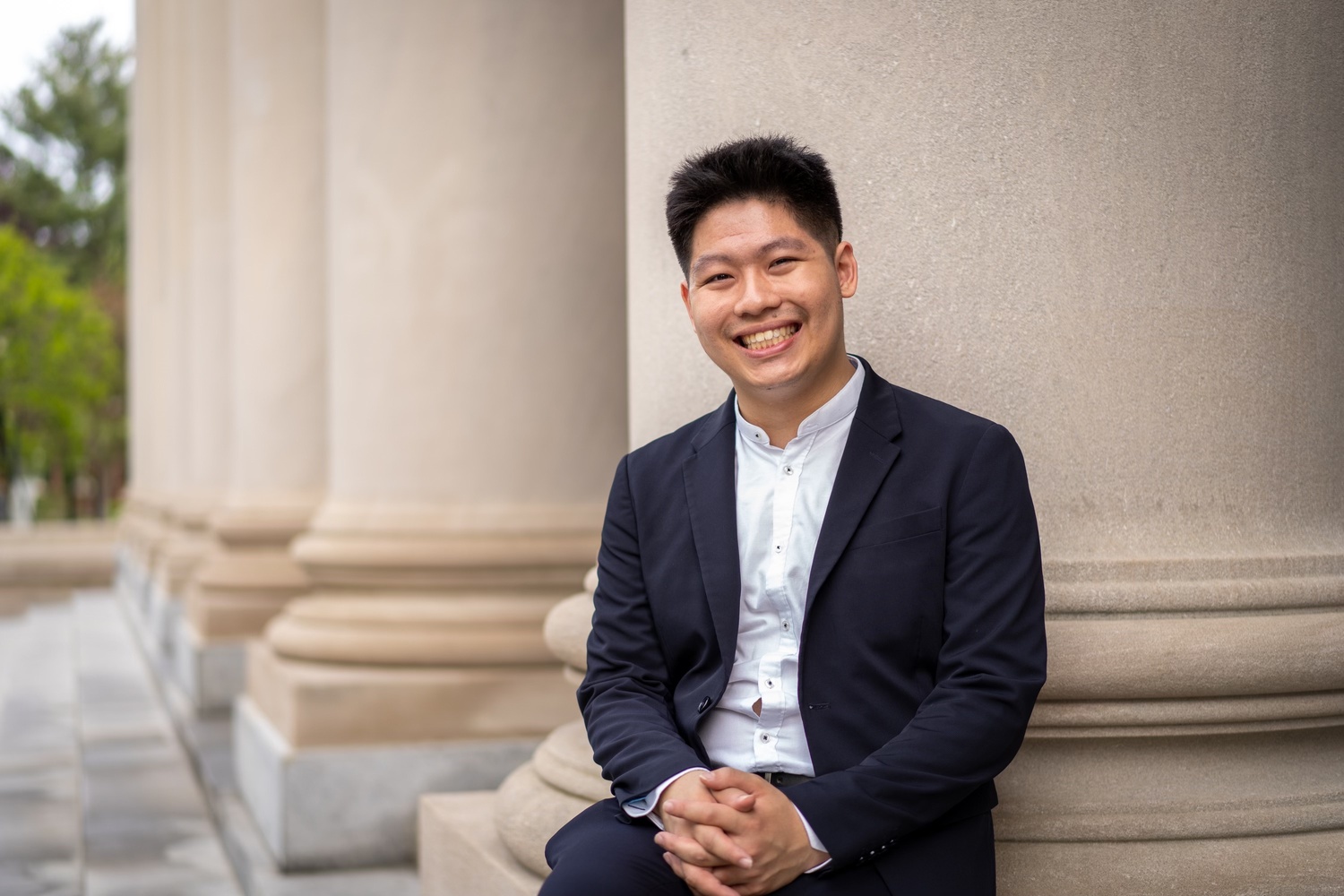
News
Summers Will Not Finish Semester of Teaching as Harvard Investigates Epstein Ties

News
Harvard College Students Report Favoring Divestment from Israel in HUA Survey

News
‘He Should Resign’: Harvard Undergrads Take Hard Line Against Summers Over Epstein Scandal

News
Harvard To Launch New Investigation Into Epstein’s Ties to Summers, Other University Affiliates

News
Harvard Students To Vote on Divestment From Israel in Inaugural HUA Election Survey
Artist Profile: Ian Chan ’23 on Human Connections in Musical Theater

Ian Chan ’23 is a firm believer that collaboration brings about “the most powerful forms of artistry.” The New York City-based composer, orchestrator, and music director has worked on Broadway productions like “1776” and “Smash,” among countless others.
Chan began his journey in the arts from a young age as a classical pianist and violinist, taking lessons and entering competitions. He even composed classical pieces during this time, but he soon grew disenchanted.
“It was very solitary for me, and I didn’t really like that,” Chan said in an interview with The Crimson.
Despite this disillusionment, Chan’s first brush with the arts at Harvard wound up being the First-Year Arts Program. It was there that he discovered his passion for musical theater, especially its power to bring people together. Within musical theater, he was able to do all of the things he loved about his classical background, while he actually “got to work with people.”
Chan became involved with the Asian Student Arts Project (ASAP), which was formative in his realization that Asians could come together to make Asian art. In his spring semester, he music-directed ASAP’s very first production, a musical titled “The East Side.”
At this time, Chan was concurrently composing the First-Year Musical in collaboration with fellow first-years, some of whom he still considers his best friends. The First-Year Musical contributed a crucial role to his idea of what it meant to create art.
“This is both a community and an artistic process,” Chan said. “That means a lot to me.”
Both productions were full of joy and meaning for Chan, prompting him to ask himself how he could continue making fun shows with friends. Guided by these questions, Chan wrote two more musicals that were performed on campus. The first was “The More You Know,” which ran in the Loeb Ex in the spring of 2022. The following year, he and two friends composed “Out,” which ran at the Agassiz Theater.
“Those are two of the most important things that I did on campus, and I’m really glad to have been able to write shows,” Chan said.
In Chan’s junior year, the American Repertory Theater asked him to join professional programming as a music assistant, a role that entailed tracking changes to the score, teaching the music to performers, and directing interactions between the cast and band. It combined Chan’s love for music and cooperation, and Chan gladly accepted.
Since rehearsals for the A.R.T. production of “1776” took place in New York City, Chan spent much of his time during the school year there in addition to his on-campus involvement in musical theater. After “1776” debuted at the A.R.T., the show transferred to Broadway in September 2022. Chan continued to travel between Cambridge and New York during his senior fall.
His experience with the A.R.T. inspired him to move to New York after graduating to “do freelance work for musical theater.” There, he served as the score supervisor and rehearsal pianist for the Broadway production of “The Heart of Rock and Roll” as well as the music associate on the hit off-Broadway production “Cats: The Jellicle Ball.”
Despite the fact that Harvard is not a music school, Chan credits it for the career he has in the arts. At Harvard, he was forced to figure out music without the support he would have received at a conservatory.
“You develop an initiative, a proactivity, and a knack for solving difficult and complex issues [at Harvard],” Chan said. “Those are the skills that I thought were most helpful for me as I made my transition into the professional world.”
Now a full-time musician in New York, Chan’s life can be busy and stressful, but he finds it exciting overall.
“I get to work with different people all the time,” he said.
Chan has just finished serving as associate music director and associate conductor of “See What I Wanna See,” an off-Broadway show composed of an all-AAPI cast. Next, he will be working on his third Broadway show, “Smash,” as a music assistant in the winter and spring.
Ultimately, Chan values human relationships, which he has found in three distinct parts throughout musical theater’s creative process. First, his artistic output originates from collaborating with friends. Next, audience members also connect with the characters whose stories they see onstage.
“We are all so limited in what we experience as individuals,” Chan said. “Each of us are just our own person, and I think that art allows us to bridge the gap that exists between us.”
Finally, even after a show ends its run, Chan hopes that it will leave its audience members thinking. He wants to “provoke conversation” and allow them to form connections as they discuss what they have seen.
“What is exciting about making art is doing it with people and in service of a common goal,” Chan said. “And that’s why I became a musical theater artist — became a musical theater musician — because I’m interested in telling stories with people, for people.”
—Staff writer Elizabeth E. Choi can be reached at elizabeth.choi@thecrimson.com.
Want to keep up with breaking news? Subscribe to our email newsletter.
